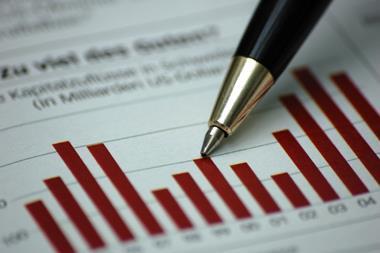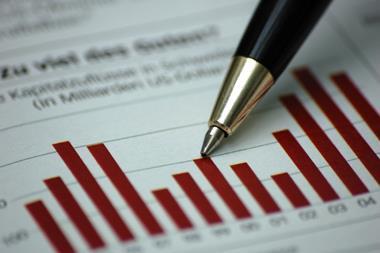The momentum for global sustainability reporting standards is rising, with jurisdictions representing over half the world’s economic output embracing the International Sustainability Standards Board (ISSB) framework, Emmanuel Faber, ISSB chair, has claimed.
Faber shared his take on the current state of play during an opening address at the IFRS Foundation Conference in London this week.
“More than 20 jurisdictions have already decided to use or are taking steps to introduce ISSB standards in their legal or regulatory frameworks. We’re talking about the vast majority of these 20, and that vast majority accounts for 50% of the global GDP. Altogether, those 20 plus represent 55% of global GDP,” he said.
His remarks came as the IFRS Foundation, the ISSB’s parent body, unveiled a raft of new initiatives focused on forging cooperation with key players in the sustainability reporting landscape.
ISSB ramps up cooperation
Alongside the news that the ISSB will take on responsibility for the Transition Plan Taskforce’s disclosure-specific materials, the board has also formalised collaboration with the Greenhouse Gas Protocol and committed to deepening its partnership with the Carbon Disclosure Project.
Alongside these developments, the ISSB has also committed to collaborating with the Global Reporting Initiative on identifying and aligning common disclosures under their respective disclosure frameworks.
Elsewhere in his speech, Faber reiterated the oft-cited mantra about the ISSB’s focus on meeting investor needs by developing standards that deliver high-quality, decision-useful information about sustainability-related risks and opportunities.
He said: “The focus of the ISSB in this regard will continue to be on the provision of high-quality, decision-useful information about the plans that companies have, consistent with the focus of IFRS S-2 [the ISSB’s climate-reporting standard], rather than requiring that companies engage in transition planning, per se.”
Additionally, Faber reiterated his board’s commitment to support implementation of IFRS S1 and IFRS S2 over the next two years – with a particular focus on providing educational materials and guidance – and restated the ISSB’s mission to create a consistent global baseline in sustainability disclosures.
Reviewing the situation
Faber’s stock-taking remarks come as the board embarks on its work programme for the next two years.
According to a plan hammered out by the board in recent months, the ISSB is to prioritise support for jurisdictions applying IFRS S-1 and S-2, while also updating the legacy standards developed by the Sustainability Accounting Standards Board and researching projects on human capital and biodiversity.
Accounting for complexity
Meanwhile, the chair of the International Accounting Standards Board (IASB), Andreas Barckow, took the gavel to emphasise the need to address the growing complexity in financial reporting.
“At the heart of the matter is the growing complexity of business transactions, and the evolving complexity of the business environment can be regarded as a driver of growth in the complexity of business transactions, which ultimately end up being reflected in financial reporting.”
His remarks come as the dividing line between financial reporting and non-financial reporting becomes increasingly blurred, with the creation of the ISSB generating new expectations for connecting financial and sustainability-related information.
Earlier this month, IASB members voted to finalise their project to update the board’s management commentary practice statement.
The idea of companies reporting non-financial information in a management commentary statement linked to their financial statements gained traction in the 2000’s and represents an early foray by the IFRS Foundation into incorporating non-financial elements into corporate reporting.


















